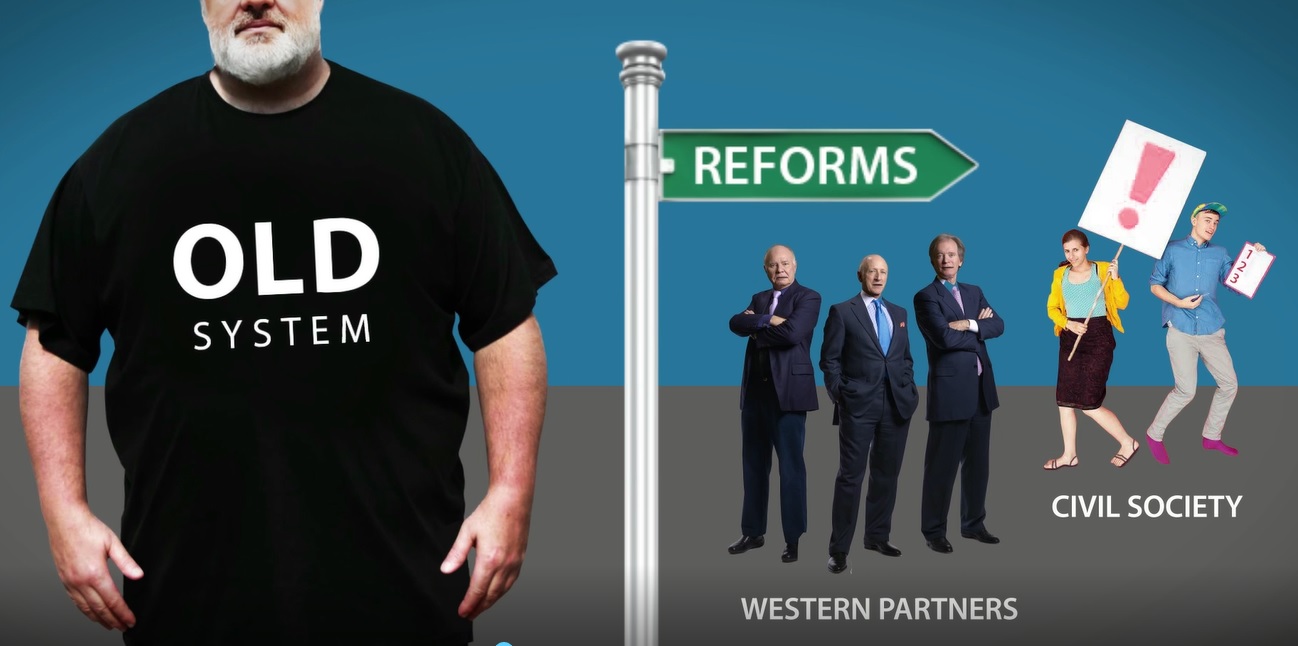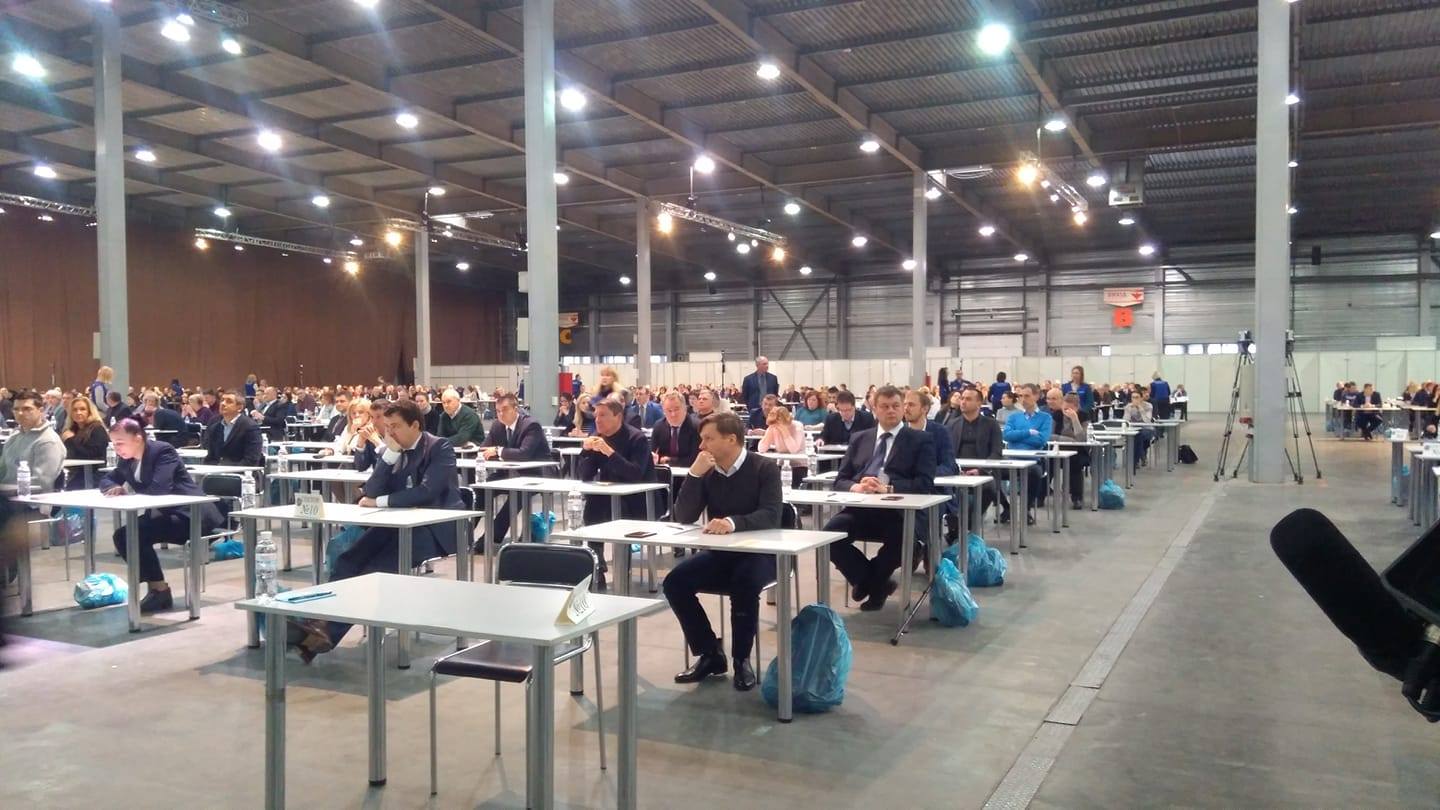Ukraine made a huge step in the fight against corruption when it adopted the law on the creation of the High Anti-Corruption Court in the summer of 2018. No, this organ would not eradicate all the corruption in the country. However, it is called to complete the investigative process against Ukrainian top-corrupts and may make punishment for grave corruption inevitable, as demanded by society.
Why was the additional court even needed in the first place? Because so far, many problems within the Ukrainian judiciary are unsolved. First of all, the overloaded courts and their political dependence. The judicial reform Introduced after the Euromaidan revolution of 2014 could not heal these systematic problems yet. That is why Ukrainian civil society came up with the idea to create a specific court for a specific problem – top-corruption. And to ensure that the new court will be filled with honest judges, a new filter for the selection process was introduced – the Public Council of International Experts (PCIE). Its creation was also a request of Ukraine’s western partners. The Council, consisting of 6 members, has to assist the High Qualification Commission of Judges (HQCJ), the body of judicial self-governance, to assess the candidates’ integrity. In the other process of judicial reform in Ukraine, the Public Integrity Council, a watchdog made of representatives of civil society, has a similar role.
If the PCIE members have doubts regarding the integrity and professionalism of a candidate, they initiate a joint meeting with the HQCJ. If at least three out of six international experts don’t confirm the candidate’s integrity and professionalism, such a candidate should leave the competition.
The HQCJ still has the key levers of influence over the appointments, since it controls all the other stages of the selection process. Moreover, this Commission has also made attempts to block the work of the international experts – for example, by changing its own regulations. However, civil society ruined the plan due to its immediate reaction.
Where is the competition to the court now?
The candidates compete for the positions of 39 judges of the new court. The Commision accepted 342 applications for the competition – 240 for the courts of the first instance and 102 to the appeals chamber. Among them, 45% were judges, 40% – lawyers, 13% – scholars, and 2% – scholars-lawyers. The involvement of lawyers and scholars in the competitions to the new courts was a part of the reform aimed at the renewal of the judicial system.
The qualification assessment stage was started in mid-November 2018. In general, it consists of six parts – an anonymous test, practical test, moral and psychological test, special assessment of the candidates, a special joint meeting of the PCIE and the HQCJ, and HQCJ interviews with the candidates. The process is expected to end in March.
On 27 December 2018, the Commission published a list of 113 candidates who passed the tests. Starting from that date, the PCIE has 30 days to indicate which candidates raise doubts.
On January 4, the international experts had held their first meeting and announced the names of eight candidates who do not fit the criteria. After the meeting on January 9, they expressed their doubts regarding 12 more candidates. According to the estimations of Ukraine’s civil society organizations, there will be more such candidates.
The antiheroes among the candidates
Four of the first eight candidates whom the PCIE wants to veto are so-called Maidan judges – those who unlawfully persecuted Euromaidan activists, and the judges who covered up their dishonest colleagues.
Back during another competition, that of to the Supreme Court, the civil society watchdog also raised an alarm regarding Maidan judges. However, the HQCJ tossed their warnings aside and approved them to serve in Ukraine’s highest court structure.
And what about the rest of the candidates? The PCIE will hold its next meetings in January. Meanwhile, members of civil society conducted their own monitoring of the candidates. According to the law, civil society is not officially involved in the process of creation of the Anti-Corruption Court. Still, its representatives announced they are ready to share their experience and conclusions with the international experts.

On 9 January 2019, the Anti-Corruption Action Centre, DEJURE Foundation, Transparency International Ukraine, and AutoMaidan, organizations involved in the anti-corruption and judicial reform, presented their joint monitoring.
“We expect that the Anti-Corruption Court will become an example of the renewal of Ukraine’s judiciary and a judicial institution which finally will provide fair justice at least in the cases of top-corruption,” said Maksym Kostetskyi, legal adviser at Transparency International Ukraine. The expert added that out of 55 dishonest candidates, the majority belong to the old judicial system while 13 are lawyers or scholars.
During the presentation, the representatives of the four organizations outlined some outrageous cases.
Kateryna Butko, coordinator of AutoMaidan projects, explained why appointing the so-called Maidan judges poses risks.
“One of the arguments that the HQCJ provides to justify why they allow these judges to pass is that their actions did not lead to tragic consequences. They resulted in mere administrative penalties or prohibitions of peaceful protests in some city which did not result in a crackdown of demonstrations. We want to stress another aspect: the ‘Maidan’ judges are a special category of judges who are 100% ready to implement any orders. These judges are useful for any government. Moreover, now these judges are again used in cases which have political aspects,” said Butko.
The expert gives an example of the candidate judge Oksana Holub who during the Euromaidan Revolution stripped the Euromaidan “cavalry,” activists with their own cars, of their driving licenses. After Euromaidan ended, the same judge had returned the indictment of Mykola Martynenko, a gray cardinal of Ukraine’s politics who is suspected in large-scale corruption, to prosecutors. Among the “Maidan” judges, there are also those who already made soft decisions in corruption cases. Butko says this proves that such judges can implement political orders even now.
Iryna Shyba, Head of Projects of the DEJURE Foundation, said that during the monitoring, the four organizations analyzed the candidates’ public declarations and suspected that many had hidden their assets, understated their wealth, or registered assets with their relatives. This is likely to mean that the candidates who aim to become anti-corruption judges were involved in corruption themselves.
“During last year, the Chaykin couple earned only UAH 55,000 (about $2,000 – ed) and UAH 54,000 dividends from deposits. However, in 2015 the family declared millions of hryvnias in savings. Also, since 2012, they forgot to declare their right of using apartments and other property,” said the expert.
Shyba continues with the example of lawyer Serhiy Fediaiev, who manages a law office. During the last year, he earned just UAH 15,000 (around $530), which is quite unrealistic for a lawyer with such a practice. At the same time, he received a UAH 1 mn (about $35,520) gift from his father. And the lawyer Vasyl Postulga had no declared assets altogether while being a beneficiary of a few enterprises.
The stories of some candidates are worthy of a comedy film. Like the one with the judge Ruslan Hytryk, who in 2015 caused a car accident while drunk.
“At the same time of the same day, he made 12 decisions. Moreover, one of them concerned a drunk driver,” Butko describes.
The representatives of society are confident in the credibility of the members of the PCIE, however have serious doubts in the HQCJ.
The HQCJ as an obstacle
Even if the PCIE will manage to veto dishonest candidates, it is still the HQCJ which plays the main role in the selection process. The Commission will form the recommendation list of the candidates and give it to the High Council of Justice. The latter, in its turn, will approve the list for the president. After, the president will appoint the judges.
“The HQCJ managed to use different manipulations to obstruct the work of the international experts. The Commission was thwarted while trying to use some manipulations. Other manipulations can still be used. The key question is that after the international experts complete their work and toss out some amount of candidates, the ball will be on the side of the HQCJ. The Commission has such a tangled and complicated methodology of assessment of candidates, that they can subjectively, at its discretion, and on some outside [political – Ed] request lift some candidates to the top of the list, or drop good candidates,” said Anastasia Krasnosilska, advocacy manager at the Anti-Corruption Action Centre, to Euromaidan Press.
Still, the expert stresses that there are candidates who deserve the place in the newly created court.
“We need at least 35 judges to form the court. It’s not that much. There are people in the list who we don’t question at all – those that did not make politically motivated decisions, and have no unexplained assets. So if the HQCJ will say that there is no one else in the list, so they have to appoint ‘Maidan’ judges – it is not true.”
Previously, representatives of civil society repeatedly stated that to make the judicial reform successful, the bodies of judicial self-government should be formed based on new principles. So far, 50% of two such bodies, the High Qualification Commission of Judges and the High Council of Justice, are selected by the Congress of Judges. Representatives of society claim that so far Ukraine is not ready to have judges be elected by judges. As the experience of the selection of candidates to the Supreme Court, ongoing competition to the Anti-corruption Court, and the qualification assessment of judges show, this opens the door to conflicts of interest and the appointment of compromised judges, thus perpetrating the old system.
Watch the Euromaidan Press documentary on the creation of the Anti-Corruption Court








